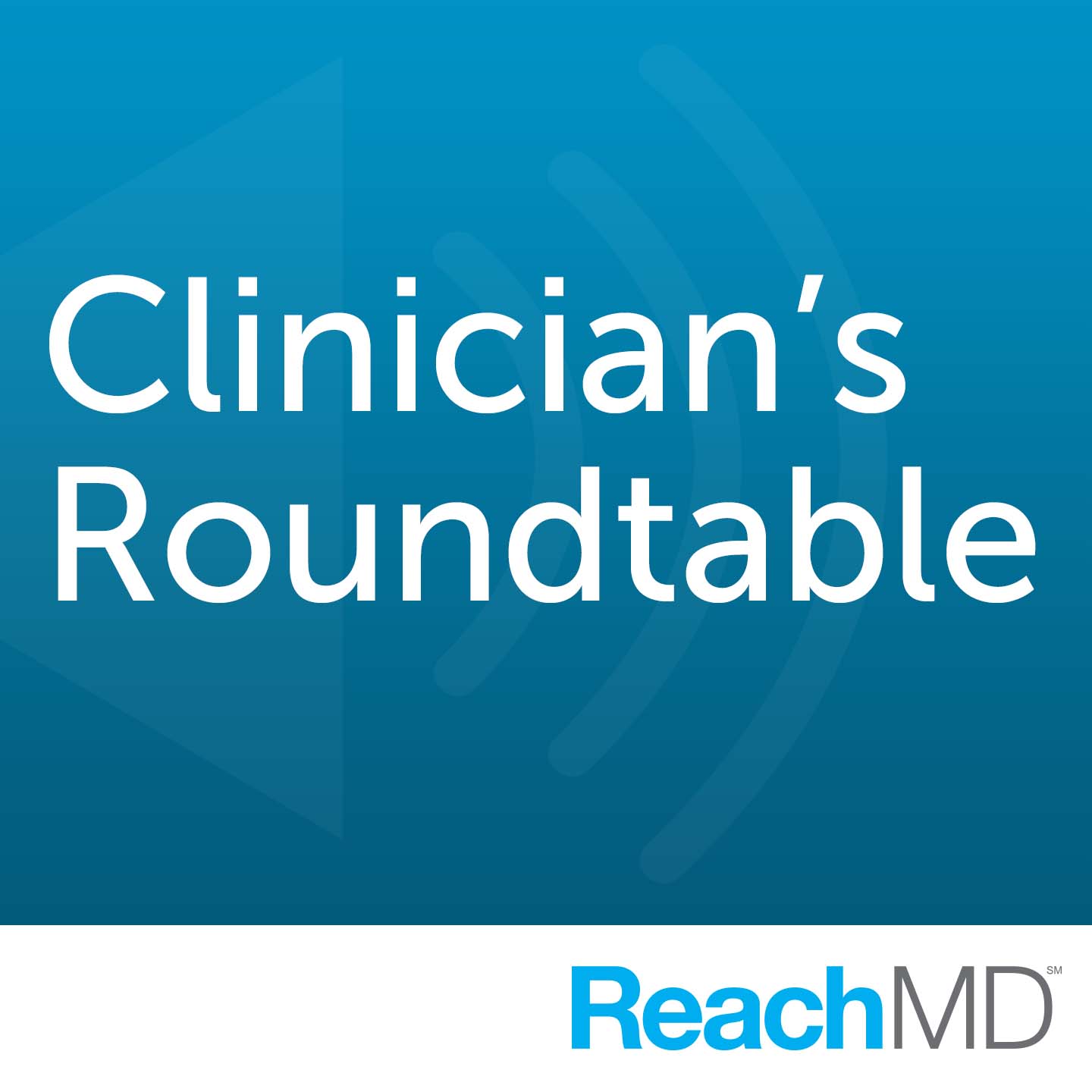

Clinician's Roundtable
ReachMD
Tune in to interviews with the top thought leaders in medicine exploring the clinical and professional issues that are foremost in the minds of the medical community. Join us at the Clinician's Roundtable for discussions on a vast range of topics that every medical professional should know about.
Episodes
Mentioned books

May 28, 2008 • 0sec
A Ratings Company's Stance on What Providers Need to Know
Host: Bruce Japsen
Guest: Samantha Collier, MD
Everybody from the government to large employers are getting in the business of quality measurement. But what does one of the major commercial enterprises involved in health grades think of this movement? Dr. Samantha Collier, chief medical officer of HealthGrades, tells the Chicago Tribune's Bruce Japsen how one of the nation’s largest independent healthcare ratings companies fits into the crowded field.

May 27, 2008 • 0sec
The Future of Tinnitus Research and Treatment
Host: Mark Nolan Hill, MD
Guest: Richard Salvi, PhD
Dr. Richard Salvi, professor in the department of communicative disorders and sciences, and director of the Center for Hearing Deafness at the State University of New York at Buffalo School of Medicine, outlines potentially fertile areas of research in our pursuit of more effective treatment regimens for tinnitus with host Dr. Mark Nolan Hill. We are still working toward a cure for the condition, but there have been major advances in our treatment of the physiologic and psychologic triggers for the condition. What are the most important investigational issues in the future of tinnitus research?

May 27, 2008 • 0sec
Advances in Treatment for Tinnitus
Host: Mark Nolan Hill, MD
Guest: Richard Salvi, PhD
Major advances in tinnitus research are making investigators very optimistic about our ability to treat the condition now and in the future. What are the most effective therapeutic measures for tinnitus? What are the specific mechanisms behind our various treatment options? Dr. Richard Salvi, professor in the department of communicative disorders and sciences, and director of the Center for Hearing Deafness at the State University of New York at Buffalo School of Medicine, details our ongoing pursuit of optimal treatment strategies for tinnitus with host Dr. Mark Nolan Hill.

May 27, 2008 • 0sec
Tinnitus: A Disorder of the Ear or the Brain?
Host: Mark Nolan Hill, MD
Guest: Richard Salvi, PhD
We're learning more about tinnitus at a steady clip, as researchers use newer imaging modalities to help us understand the origin of the condition, and consider lifestyle and behavioral modifications that may limit its effects. Host Dr. Mark Nolan Hill explores the main causes of tinnitus with Dr. Richard Salvi, professor in the department of communicative disorders and sciences, and director of the Center for Hearing Deafness at the State University of New York at Buffalo School of Medicine.

May 27, 2008 • 0sec
Tinnitus: The Everyday Toll on Our Patients
Host: Mark Nolan Hill, MD
Guest: Richard Salvi, PhD
A neurological condition that can be highly distressing, tinnitus affects as much as fifteen percent of our population, according to some surveys. How should medical professionals counsel their patients on this condition? Are we moving closer to understanding the basic triggers of tinnitus? Dr. Richard Salvi, professor in the department of communicative disorders and sciences, and director of the Center for Hearing Deafness at the State University of New York at Buffalo School of Medicine, joins host Dr. Mark Nolan Hill to discuss the impact of tinnitus on the daily lives of our patients.

May 27, 2008 • 0sec
Statins & The Stanley Cup: a Patient's Challenges with Heart Disease
Host: Susan Dolan, RN, JD
Guest: Steve McKee
Hear Steve McKee, author of the book, My Father's Heart: A Son's Journey, as he discusses why it was so difficult for him to make the decision to take a statin for his heart disease.

May 27, 2008 • 0sec
My Father's Heart: A Son's Journey
Host: Susan Dolan, RN, JD
Guest: Steve McKee
Steve McKee's paternal grandfather died of a heart attack at age 53, his father died of a heart attack at age 50 and he discovered he had heart disease at the age of 52. Hear author Steve McKee as he discusses his experience with heart disease in his book, My Father's Heart: A Son's Journey.

May 27, 2008 • 0sec
WellDoc Communications
Host: Susan Dolan, RN, JD
Guest: Suzanne Clough, MD
Dr. Suzanne Sysko Clough is the Chief Medical Officer of WellDoc Communications, a technology based healthcare company located in Baltimore, Maryland. Hear Dr. Clough as she discusses how the WellDoc cell phone-based technology helps patients manage their diabetes.

May 27, 2008 • 0sec
Malignant Glioma Research Update
Host: Bill Rutenberg, MD
Guest: Mitchel Berger, MD
Malignant Glioma: A diagnosis your patient wants do not want to receive. As their primary physician what more can you tell your patient? What does the latest research indicate about the pathobiology of Gliomas? In this segment our guest Dr. Mitchel Berger, Professor and Chair of Neurological Surgery at the University of California, San Francisco, talks with host Dr. Bill Rutenberg about the latest Glioma research. They discuss the genetic advances that may lead to new treatments including a possible vaccination currently being developed that could one day replace mainstay treatments including radiation and chemotherapy.

May 27, 2008 • 0sec
Updated Guidelines for Treating Pediatric Sinusitis
Host: Bill Rutenberg, MD
Guest: Richard Rosenfeld, MD
Dr. Richard Rosenfeld, professor of otolaryngology at the State University of New York Health Sciences Center, joins host Dr. Bill Rutenberg for an in-depth discussion of the current guidelines for the management of sinusitis. Dr. Rosenfeld discusses current criteria for evidence-based diagnosis and recommended treatment.


